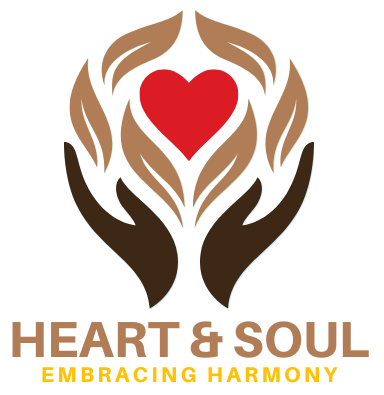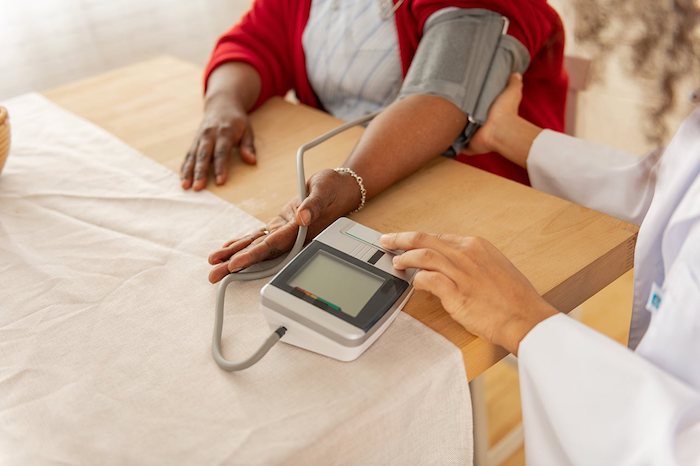Blood pressure—a catchphrase we have very often heard. But what is it, or what does it really mean to us? Why is it so necessary to our health? That’s a silent threat lurking around undetected for maybe even years, leading to serious health complications. Not to worry! Having an understanding of blood pressure, how you monitor it, and measures in taking control empowers manners on living well and healthily for long.
Blood Pressure: Understanding Meaning
Blood pressure—these are words that we hear at every doctor’s office, yet perhaps additionally can be somewhat unclear to a lot of us. After all, it is really important that every one of us knows about blood pressure. That basically means how hard your blood is pushing against the walls of your arteries while it moves. This pressure is actually what helps propel the blood throughout your body, also delivering oxygen and nutrients to every cell.
The Two Numbers That Matter:
Blood pressure is measured in millimeters of mercury and expressed as two numbers:
- Systolic pressure (top number): This is the pressure that occurs in your blood vessels when your heart has a contraction to pump out blood. Just consider this surge in pressure as coming from the forceful contraction of the heart.
- Diastolic pressure (bottom number): The pressure between heartbeats, when your heart relaxes and refills with blood. Think of it as the resting pressure in the arteries while your heart is on a brief vacation.
A Healthy Range for a Healthy You:

A good blood pressure reading would be anything less than 120/80 mmHg. Again, this is a guideline, and your doctor will decide what the best range for you will be, considering your personal risk factors. They are things that form the basis for deciding target blood pressure goals and include things like age, family history, and the presence of other health conditions.
Pressure Variations Understood:
Blood pressure does not remain constant; it fluctuates during the day. This is because any type of physical activity, stress, emotion, and even the time of day can cause temporary change. However, consistently high readings on one’s blood pressure over time can point out a problem.
The Silent Threat: Why High Blood Pressure is Dangerous
The most terrifying thing about high blood pressure, or hypertension, is that often it does not give any signs or symptoms. Unless treated, long-term high blood pressure may damage your arteries, which can lead to serious complications like these:
- Heart disease: Weakened or narrowed arteries due to high blood pressure can lead to a heart attack and angina—chest pain.
- Stroke: If a blood clot in the brain blocks a blood vessel because of high blood pressure, this blockage can cause a stroke.
- Kidney disease: High blood pressure damages your kidneys’ delicate filtering system.
- Vision problems: Uncontrolled high blood pressure can injure the blood vessels in your eyes, leading to vision loss.
How do i know if my blood pressure is high?
High blood pressure has been referred to as “the silent killer” for a good reason. It is one of the few health conditions that, most of the time, advances without warning, at times putting your well-being in jeopardy. So, how do you really know whether your blood pressure is high or not?
The Absence of Symptoms: A Cause for Concern
Unfortunately, the silence of high blood pressure is precisely what makes it so important to see your doctor regularly. Blood pressure checks are part of almost all physical exams, and this provides major potential for early detection and intervention.
However, there are some exceptions. At times, people with high blood pressure may experience vague or non-specific symptoms in the following ways:
The following are some of the common signs and symptoms that must be watched out for:
- Headaches: Specifically, very testy headaches in the morning are a characteristic indicative sign of high blood pressure.
- Dizziness or lightheadedness: It can be a fleeting emotion or a more chronic feeling of being off-balance.
- Fatigue: It is a common symptom of many medical conditions, including high blood pressure.
- Vision changes: The vision could be blurred, or focusing difficulties may be experienced with high blood pressure.
- Shortness of breath in severe cases: This is a more serious symptom and requires immediate medical attention.
In general, though, it is not necessary that if you have high blood pressure, you will face any of the symptoms mentioned above. Many other factors can cause these problems. If you experience any of these concerns, consult your doctor for a proper diagnosis and to rule out any underlying health conditions.
The Need for Home Monitoring:
We know that doctor visits are essential in monitoring blood pressure. However, home blood pressure monitoring empowers you to do more and be proactive about your health. These include if one is confirmed to have the condition and is at risk due to predisposing risk factors.
Here are some tips for an Accurate Home Blood Pressure Monitoring:
- Get a validated upper-arm cuff monitor: Wrist monitors are thought to be less accurate so best avoided.
- Follow the instructions and get familiar with the proper technique.
- Measure at different times of the day, using a similar routine each time. Take readings before meals, so before breakfast and lunch, avoiding caffeine and strenuous activity beforehand if possible.
- Keep a log of your readings and discuss these at your appointments with your doctor. This will allow them to see how your blood pressure has been running overall and to modify your treatment if necessary.
Early detection and management are very important in preventing severe health complications resulting from high blood pressure. You can be informed of the reading, especially through home monitoring or during frequent visits to your doctor, and then in cooperation with the health professional, live a healthy life.
Empowering Yourself: Can High Blood Pressure Be Prevented?
Such is the silent, potential threat of hypertension—high blood pressure—that it can have devastating consequences if it goes without attention. Now, here is the good news: high blood pressure can often be totally prevented, or at least controlled to a very great extent, by focusing on healthy lifestyle habits. Taking charge of your well-being by these strategies can empower you toward a healthful, long life.
The Pillars of Prevention: A Lifestyle Makeover
Think about high blood pressure prevention as the foundation for your heart health. Here are some of the pillars of which you should be aware:
- Maintaining a Healthy Weight: The more weight, the more work the heart has to do to pump blood flow around the body; blood pressure is, therefore, elevated. Losing weight, even modestly, can considerably lower one’s blood pressure.
- Balanced Diet: Eat right to keep your blood pressure under control. The diet should be replete with fruits and vegetables as well as whole grains that provide the necessary nutrients but the intake of sodium is minimal. These are the principal elements raising blood pressure. Emphasize reducing the intake of food items processed with added sugars and unhealthy fats. Above these, include lean sources of protein such as fish, chicken, and beans, keeping in mind the addition of some heart-benefiting fats from sources like avocados, nuts, and olive oil in your diet.
- Regular Exercise is the Key: Aim for a minimum of 150 minutes of moderate-intensity aerobic physical activity or 75 minutes of vigorous-intensity aerobic physical activity throughout the major part of the week. A person will be helped to maintain a good weight, improve blood flow, and give the heart a regimented workout through regular physical activity. Even small increases in activity make a big difference.
- Reduce Sodium Intake: Sodium is among the greatest contributors to high blood pressure. Always check, on the food labels, the amount of sodium the food contains and opt for low-sodium food and drinks. Limit processed, canned, or restaurant foods that are filled with hidden added salt. Instead of salt, try new herbs and spices on your foods.
Manage Stress Effectively: Restless stress can become a strong influence in regard to your blood pressure. Find healthy ways to cope with and manage stress through yoga, meditation, deep breathing, or through nature. Prioritize techniques for relaxation that work for you.
- Limit Alcohol Consumption: Taking too much alcohol can raise your blood pressure. The American Heart Association recommends no more than one drink a day for women and two drinks a day for men as the limit of alcohol intake.
- Don’t Smoke: Smoking damages blood vessels and increases your risk of heart disease and stroke. Quitting smoking is one of the most important things you can do for your overall health, including your blood pressure.
Remember, these are all positive lifestyle changes that not only benefit your blood pressure but also contribute to your overall well-being.
Working with Your Doctor: A Collaborative Approach
Even if one has a tendency to follow good health habits, yet blood pressure can play a risk factor in individuals due to family history or any other health conditions. In that case, you definitely will have to work along with your doctor. They can more fully monitor one’s blood pressure, assess your risk variables, and prescribe other techniques, including medication if need be.
Management of the Case of High Blood Pressure: Treatment Options and a Brighter Future
Now, if it is beyond the nonpharmacological measures, then high blood pressure is not the end of the world when such effective treatment options exist, which help one manage this condition for reducing risks of complications. Here is a breakdown of the major approaches:
Medications: Your doctor may prescribe medications to lower your blood pressure. Different classes of medications lower blood pressure in different ways, so your doctor will choose the most appropriate medication(s) based on your individual needs and medical history. Some common classes of blood pressure medications include:
- Diuretics: This class of medications helps your kidneys remove extra fluid from your body. This can help lower blood pressure.
- ACE inhibitors (angiotensin-converting enzyme inhibitors): These medications relax blood vessels by prohibiting the production of a hormone that narrows them.
- ARBs (angiotensin receptor blockers): These medications work similarly to ACE inhibitors but target a different part of the hormone system.
- Calcium channel blockers: These medications relax the muscles in the walls of your blood vessels, allowing them to widen and reducing blood pressure.
- Beta-blockers: These medications slow one’s heart rate and the force with which the heart beats. This helps lower blood pressure.
It is important to take your medicines as directed by your doctor and to keep scheduled follow-up appointments.They will continue to check your blood pressure and change your medicines if needed.
Maintaining a Healthy Lifestyle Remains Paramount:
Even if you are taking medication, a healthy lifestyle remains vitally important for managing high blood pressure. Think of it as a two-pronged approach. Your healthy habits work synergistically with the medication to achieve optimal blood pressure control. Here’s a reminder about the key lifestyle pillars:
- Maintain a healthy weight
- Embrace a balanced diet
- Exercise regularly
- Reduce sodium intake
- Manage stress effectively
- Limit alcohol consumption
- Don’t smoke
Conclusion: Toward a Brighter, Healthier Future
Also read: Decoding Weight Loss: Exploring Diets, Finding Your Fit
Blood pressure can be a cause for worry but need not define life. We can know the blood pressure and get to understand how it is regularly monitored, with a proactive approach through lifestyle changes and probably medication; these together reduce the serious health risks associated with the condition greatly. Remember, you’re never alone in this journey. Work with your doctor, follow good health practices, and make choices that will.setEditable put you firmly in charge of your blood pressure for a healthier future.

